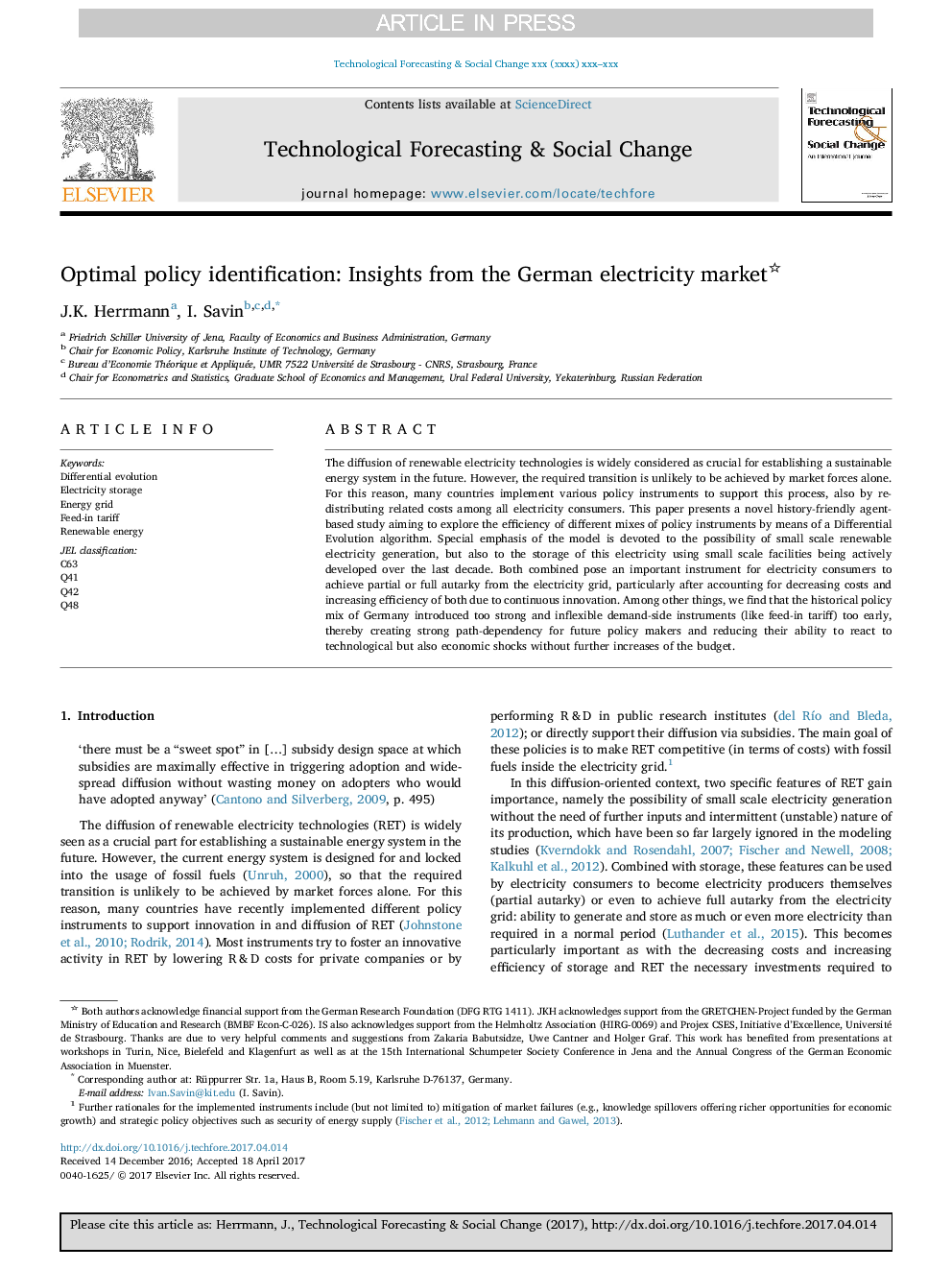ترجمه فارسی عنوان مقاله
شناسایی خط مشی مطلوب: اطلاعات از بازار برق آلمان
عنوان انگلیسی
Optimal policy identification: Insights from the German electricity market
| کد مقاله | سال انتشار | تعداد صفحات مقاله انگلیسی |
|---|---|---|
| 104823 | 2017 | 20 صفحه PDF |
منبع

Publisher : Elsevier - Science Direct (الزویر - ساینس دایرکت)
Journal : Technological Forecasting and Social Change, Volume 122, September 2017, Pages 71-90
ترجمه چکیده
انتشار تکنولوژی های برق تجدید پذیر به طور گسترده ای در آینده برای ایجاد یک سیستم انرژی پایدار اهمیت دارد. با این حال، انتقال تنها از سوی نیروهای بازار به صرفه نیست. به همین دلیل، بسیاری از کشورها ابزارهای مختلف سیاست گذاری را برای حمایت از این روند، و همچنین با توزیع مجدد هزینه های مربوطه در میان تمام مصرف کنندگان برق، اعمال می کنند. این مقاله یک تحقیق مبتنی بر عامل مبتنی بر تاریخچه ای است که هدف آن کشف کارایی مخلوط های مختلف ابزارهای سیاست با استفاده از الگوریتم تکامل دیفرانسیل است. تاکید ویژه مدل به امکان تولید برق تجدید پذیر در مقیاس کوچک اختصاص داده شده است، بلکه به ذخیره سازی این برق با استفاده از امکانات کوچک در مقیاس وسیعی که طی دهه گذشته به طور فعال توسعه یافته است. هر دو این ترکیبات یک ابزار مهمی برای مصرف کنندگان برق برای دستیابی به پارازیت یا کامل از شبکه برق هستند، به ویژه پس از حسابداری برای کاهش هزینه ها و افزایش کارایی هر دو به علت نوآوری مداوم. در میان دیگر موارد، ما دریافتیم که ترکیب سیاست تاریخی آلمان ابزارهای جانبی بیش از حد قوی و غیرقابل انعطاف (مثل تعرفه خوراک) را خیلی زود معرفی کرد، بنابراین ایجاد وابستگی قوی به سیاست گذاران آینده و کاهش توانایی آنها در واکنش به فناوری بلکه شوک های اقتصادی بدون افزایش بیشتر بودجه.

